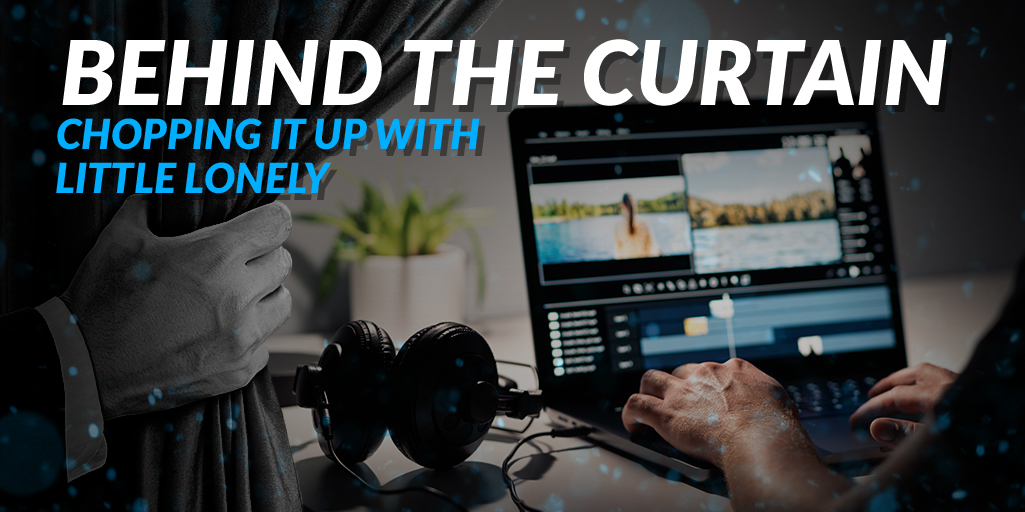
In this feature, we pull back the curtain to learn more about different aspects of the adult industry.
Video editors are the unsung heroes of the production process. Their skill set is as technical as it is artistic and they shape the scene to its final aesthetic. One of the finest video editors in the industry goes by the moniker Little Lonely. We sat down with him to find out more about his career, interests, and aspirations.
What inspired you to become a video editor?
Prior to becoming a video editor, I was an aspiring musician and performer. Hiring videographers was way out of my budget for making music videos, so I took the DIY approach and started creating videos myself, learning how to splice footage together, especially trying to mask all the mediocre footage I shot through editing.
Can you walk me through your typical workflow when editing a video?
The very first thing I usually knock down off my editing checklist is simple general organization in preparation of receiving any footage. This entices creating a variety of folders like Music, SFX, Footage, etc. I then read any brief or script given to me to get a good idea of what I’ll be working on and, in extension, communicate with the directors and/or producers to both see eye-to-eye on their vision and even develop any further ideas.
Now comes the fun part… Using Premiere Pro, I’ll literally watch the entire footage shot in production, culling what I think are the best takes and taking notes of any issues or significant moments. After rough cutting a scene together, I’ll integrate music and sound design and later apply my color grade and corrections. If the scene calls for any additional VFX, I utilize Blender, an open source 3D animation software, to spice up any motion graphics, video transition or animations.
How do you approach organizing and managing large amounts of footage?
The first step is usually a big, deep breath. It’s a very tedious process, but with time I’ve become a bit robotic with it, meaning that I tend to read through generic file nomenclature that contain every letter of the alphabet plus 26 different numbers very quickly. With this, organizing footage has only become quicker with time and I am able to synchronize footage to sound and structure my timeline chronologically with the help of clapboards used on set.
What are some common challenges you face in your role, and how do you overcome them?
I believe ego was the biggest challenge for me to overcome, in that wanting myself to shine through my video editing was an easy rabbit hole to fall into. Throughout the years, I’ve learnt to prioritize serving the story and executing what the director/producer envisions first. It is also very easy to over-edit a film or a scene by applying too many unnecessary visual effects as a gateway to show off. I’ve learnt that most times less is more.
Can you share a particularly memorable project you’ve worked on and what made it stand out to you?
I was extremely grateful to be the editor of the Disruptive Films feature For You, I Will, which won Best Picture at the XBIZ Awards last year. On top of that, I was also nominated for Best Editor! Not many people know this, but during the editing of For You, I Will, I was also juggling another ASGMax 3-part feature film, Changes, which was also nominated the same year. Looking back, it was an extremely challenging few months, but all the hard work seemed to have paid off and during that period I learnt so many new editing and VFX tricks, but more importantly, developed a deeper relationship with directors Jessica Babin and Jeremy Babcock.
How do you stay updated on new editing techniques and trends in the industry?
I’ve always been the type of person who doesn’t feel productive without learning something new every once in a while. YouTube is my greatest platform for learning any new techniques in video editing and 3D animation.
What advice would you give to someone aspiring to become a video editor?
Coming back to the previous question about challenges, I encourage editors in general to prioritize storytelling over technical showcasing. As I mentioned, video editing can oftentimes be an egotistical process because you have a powerful position that can either make or break a story if one over-edits. I also think using candid moments or even bloopers on set sometimes have a more powerful impact over serious takes!
How important is collaboration with other team members (e.g.,directors, producers) in your work?
Absolutely vital. An editor is there to bring new perspectives of the story as it develops during the editing process, but more importantly, an editor is there to execute the vision that the director/producer pictures.
Are there any specific projects or genres you particularly enjoy editing, and if so, why?
Well, I’m an absolute sucker for anything that requires any elaborate VFX or animations. I do love a good flex from time to time!
See Little Lonely’s artistic process in action:
Stay tuned to the ASGmax blog to see where we take you behind the curtain next.
absolutely fascinating
Amazing work! Truly unsung hero
Glad to hear you think so! They really are the heart and soul of what the final product ends up being.